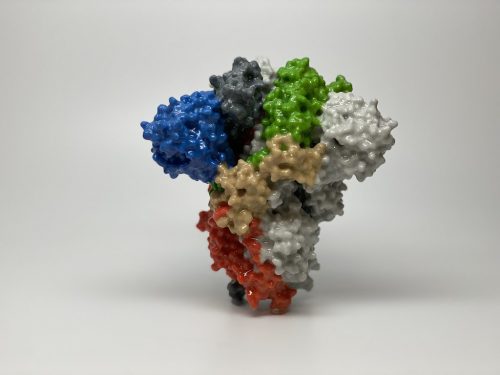Image courtesy of Flickr.
(title of study: A noncompeting pair of human neutralizing antibodies block COVID-19 virus binding to its receptor ACE2)
The COVID-19 virus’s weapon of choice to hijack host cells are the spikes on its surface, which can bind to cellular receptors. Specifically, the spikes contain receptor binding domain (RBD) proteins that target the host cell’s angiotensin-converting enzyme 2 (ACE2) receptor for cell entry.
Researchers have looked to neutralizing antibodies that disrupt this interaction between RBD and ACE2, for potential therapeutic solutions to COVID-19. However, there are two competing issues with antibody treatments: (1) antibodies are only effective if viruses do not mutate to avoid their binding, and (2) although many antibodies for a protein may exist, they could have overlapping binding sites and potentially block each other if used simultaneously.
Recently, a group of researchers in China identified two noncompetitive neutralizing antibodies for the receptor binding domain (RBD) of SARS-CoV-2. The two antibodies—B38 and H4—do not have overlapping binding sites on RBD, implicating their potential to work together in clinical applications.

